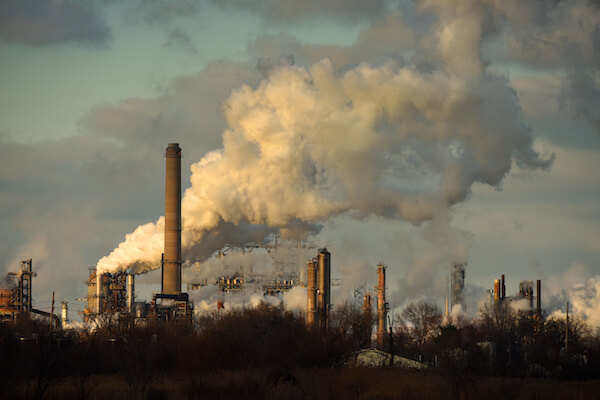 English
English

In a recent study it has been found that people residing in places with higher amounts of fine particulate matter pollution were 6 per cent more likely to suffer from glaucoma than those in the least polluted areas.

Washington DC: In a recent study it has been found that people residing in places with higher amounts of fine particulate matter pollution were 6 per cent more likely to suffer from glaucoma than those in the least polluted areas.
The study was published in the journal, 'Investigative Opthalmology & Visual Science, 2019.'
Also Read: Workers and ventilation system pollute office space
Lead author Professor Paul Foster from UCL Institute of Ophthalmology and Moorfields Eye Hospital said, "We have found yet another reason why air pollution should be addressed as a public health priority, and that avoiding sources of air pollution could be worthwhile for eye health alongside other health concerns."

"While we cannot confirm yet that the association is causal, we hope to continue our research to determine whether air pollution does indeed cause glaucoma, and to find out if there are any avoidance strategies that could help people reduce their exposure to air pollution to mitigate the health risks," added Foster.
Glaucoma is the leading cause of irreversible blindness and affects over 60 million people worldwide. It most commonly results from a build-up of pressure from fluid in the eye, causing damage to the optic nerve that connects the eye to the brain. Glaucoma is a neurodegenerative disease.
"Most risk factors for glaucoma are out of our control, such as older age or genetics. It's promising that we may have now identified a second risk factor for glaucoma, after eye pressure, that can be modified by lifestyle, treatment or policy changes," describes Foster.
Also Read: Pollution in cities damaging ecosystems
The findings were based on 111,370 participants of the UK Biobank study cohort, who underwent eye tests from 2006 to 2010 at sites across Britain. The participants were asked whether they had glaucoma, and they underwent ocular testing to measure intraocular pressure, and spectral-domain optical coherence tomography imaging (a laser scan of the retina) to measure the thickness of their eye's macula (central area of the retina).

The participants' data were linked to air pollution measures for their home addresses, from the Small Area Health Statistics Unit, with the researchers focusing on fine particulate matter (equal or less than 2.5 micrometres in diameter, or PM2.5).
The research team found that people in the most-polluted 25 per cent of areas were at least 6 per cent more likely to report having glaucoma than those in the least-polluted quartile, and they were also significantly more likely to have a thinner retina, one of the changes typical of glaucoma progression. Eye pressure was not associated with air pollution, which the researchers say suggests that air pollution may affect glaucoma risk through a different mechanism.
"Air pollution may be contributing to glaucoma due to the constriction of blood vessels, which ties into air pollution's links to an increased risk of heart problems. Another possibility is that particulates may have a direct toxic effect damaging the nervous system and contributing to inflammation," said the study's first author, Dr Sharon Chua. (ANI)